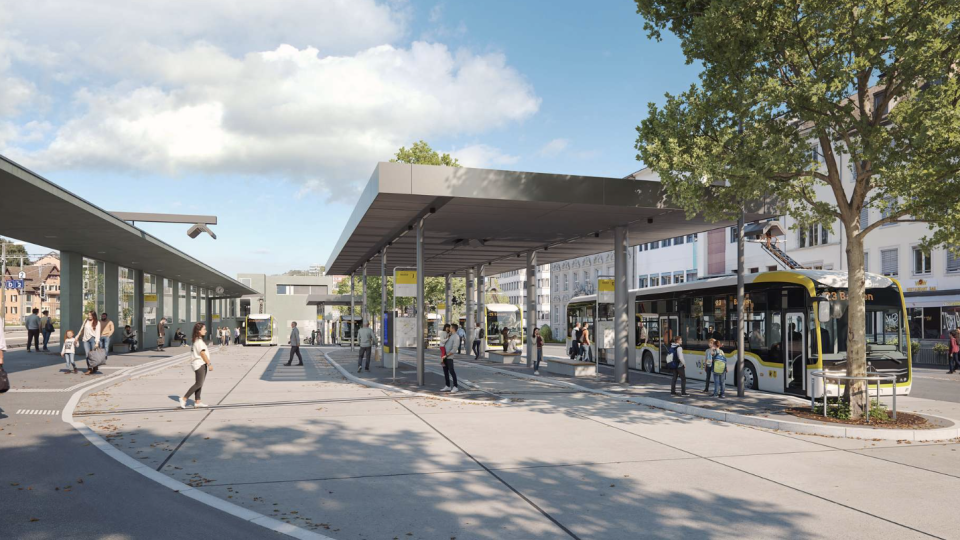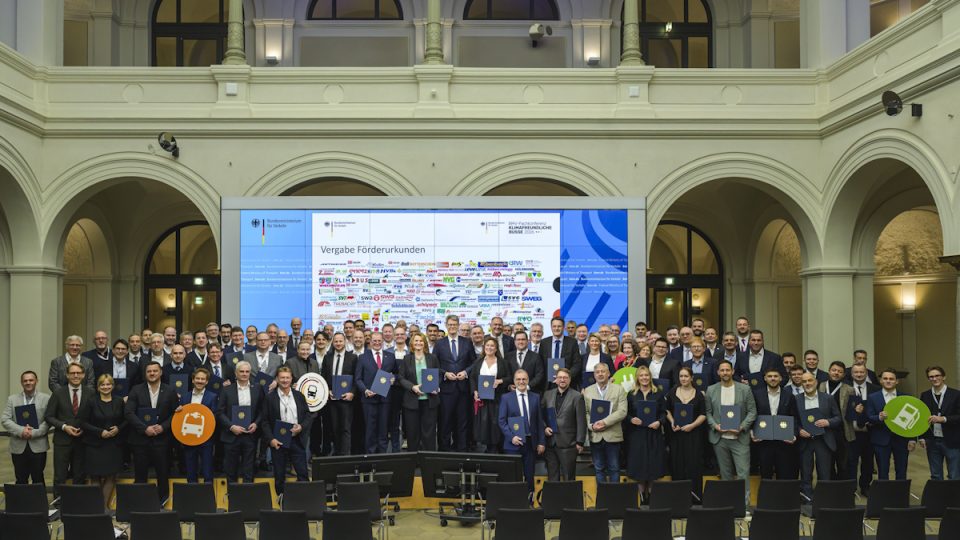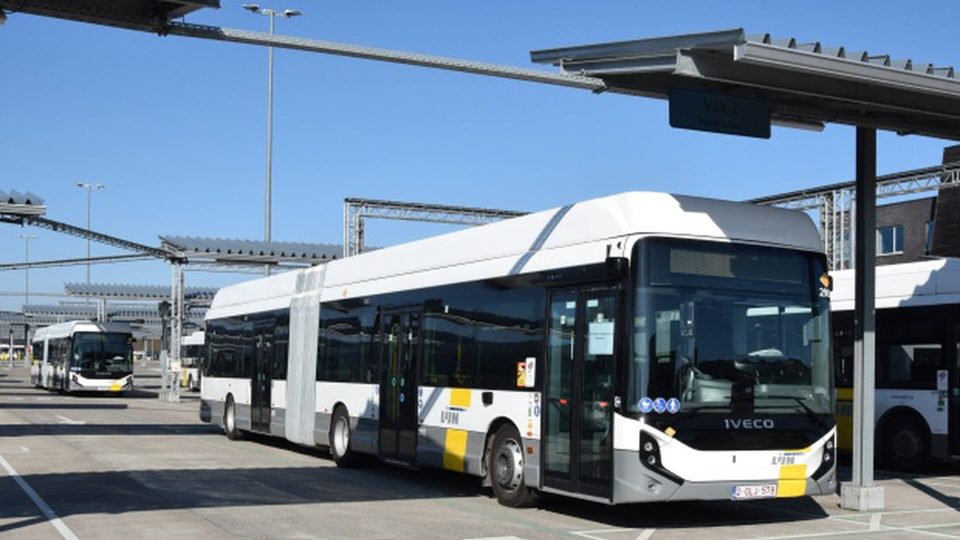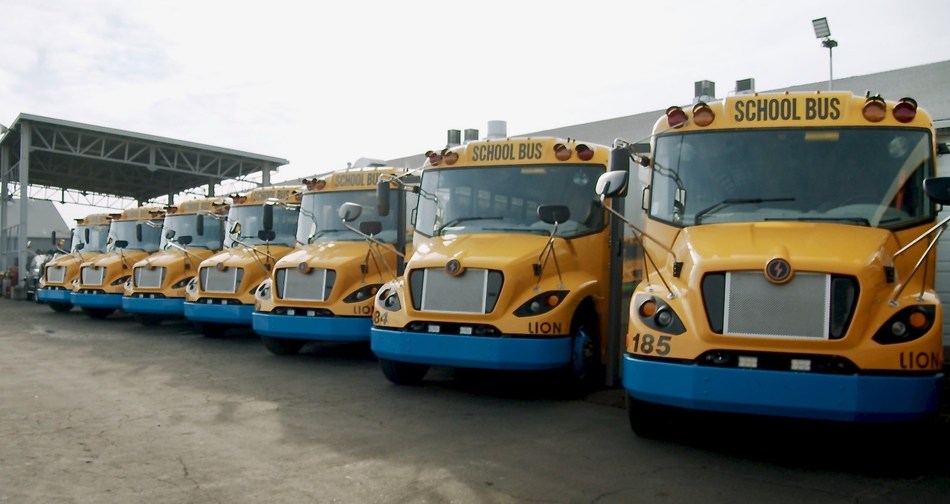Düsseldorf debuts e-bus depot featuring automated charging for 60 vehicles
Rheinbahn has inaugurated its new e-bus port at the Düsseldorf-Heerdt depot. The facility, built on 5,500 m² with an investment of €24 million, can host 60 battery-electric buses and is fully equipped with charging, cleaning, and maintenance infrastructure. Public funding played a key role, Rheinbahn stresses: the state of North Rhine-Westphalia, the Rhine-Ruhr Transport Association […]
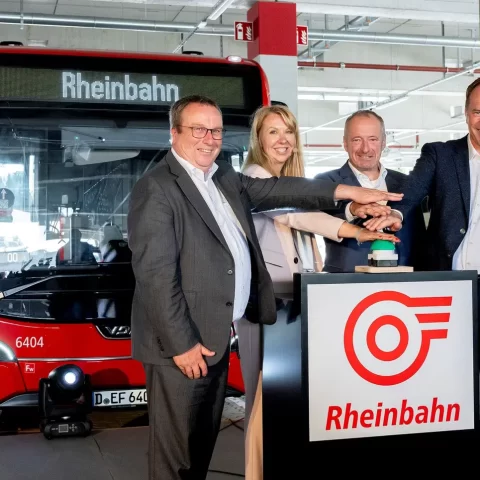
Rheinbahn has inaugurated its new e-bus port at the Düsseldorf-Heerdt depot. The facility, built on 5,500 m² with an investment of €24 million, can host 60 battery-electric buses and is fully equipped with charging, cleaning, and maintenance infrastructure.
Public funding played a key role, Rheinbahn stresses: the state of North Rhine-Westphalia, the Rhine-Ruhr Transport Association (VRR), and the city of Düsseldorf supported the €6.086 million cost of charging infrastructure, with a funding rate of 90%.
In May 2025, also a high-capacity hydrogen refueling station has entered operation in Düsseldorf – the operator has indeed 20 units whose awarding began in 2023 (ten are from Solaris). The transport company has ordered in 2023 a fleet of VDL articulated e-buses that will join a e-bus fleet mainly consisting of Irizar electric buses. In fact, back in December 2020, Rheinbahn had put ten battery-powered buses from Irizar e-mobility into service – eight of which were destroyed four months later in a fire at the bus depot in Heerdt (38 buses in total were affected). These are currently being delivered after Rheinbahn immediately reordered them.
In September 2025 also Cologne’s operator RVK announced the start of construction of a depot with on-site green hydrogen production.
Düsseldorf new electric bus depot goes in operation!
The project includes two parking halls for 30 buses each, plus a technical floor housing transformers, fire alarm systems, building controls, and a photovoltaic plant with 501 modules. The solar system generates around 195 MWh annually, enough to cover the depot’s energy needs and avoid about 66 tonnes of CO₂. The city of Düsseldorf financed the PV installation as part of its solar initiative, Rheinbahn points out in a press note.
Construction involved approximately 4,300 m³ of concrete, 760 tons of steel, and 10,450 meters of cables, the operator says. The facility offers a total charging capacity of 4,000 kW, including three fast chargers at 300 kW alongside 150 kW chargers for the remaining spaces.
Automated charging processes in Düsseldorf
What is quite interesting, charging process has been designed to be fully automated: buses extend a pantograph to a ceiling-mounted charging hood, eliminating the need for plugs or hanging cables. An intelligent load management system distributes available power according to operational priorities.
The new depot replaces the previous facility destroyed by fire in 2021 and was built under challenging conditions, including the removal of PFAS-contaminated soil, the operator states. Planning lasted 18 months, followed by two years of construction carried out alongside ongoing operations.
Annette Grabbe, CEO of Rheinbahn: “With the new e-bus port, we now have the first depot in Heerdt that is consistently designed for e-mobility. This infrastructure gives us the flexibility and efficiency we need to reliably deploy our battery buses in regular service. In doing so, we are taking responsibility and taking a decisive step further on the road to climate neutrality.”
Oliver Krischer, Minister for the Environment, Nature Conservation and Transport of North Rhine-Westphalia: “We were also happy to support this forward-looking project. The new e-bus depot not only makes public transport in the state capital fit for the future, but is also an important building block for the transport transition and for achieving climate protection goals throughout North Rhine-Westphalia.”
Oliver Wittke, Spokesman for the Board of the Rhine-Ruhr Transport Association (VRR): “With this funding, we are not only supporting Rheinbahn in rebuilding its operating facilities, but also making an important contribution to establishing electric buses as a resource-saving alternative to diesel in the long term in the network area.”
Stephan Keller, Mayor of Düsseldorf: “The new bus port is the first project in the solar initiative that the state capital of Düsseldorf has approved with around £492,000 from the climate protection budget at Rheinbahn. Large roof areas such as this one are ideal for photovoltaics – both economically and in terms of climate policy.”



